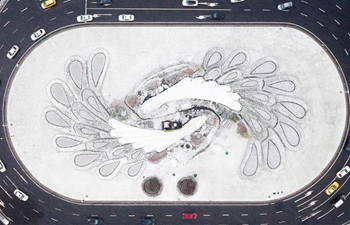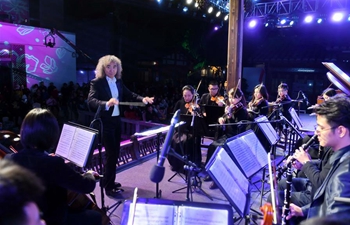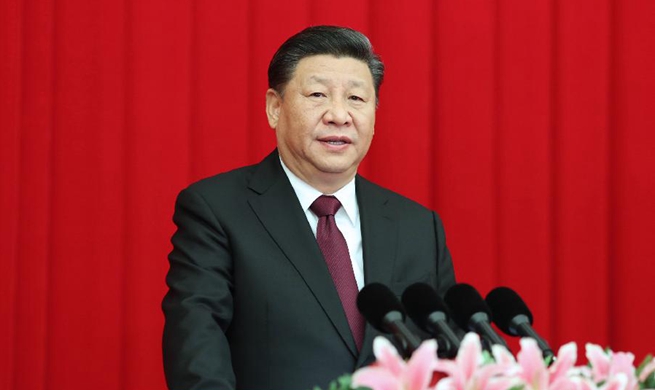BEIJING, Dec. 31 (Xinhua) -- When the song "Xianglian," or "A Love in the Hometown," was first released in 1979, its singer Li Guyi was met with strong criticism for the "demoralizing" content and singing style of the song.
"Your image, your singing, will always stay in my heart ... My love, my sweet dreams, will always stay in your arms," the lyrics Li sang with a tender and breathy voice were regarded to be unacceptable by some people four decades ago when many believed that art should only promote revolutionary morale and nothing more.
However, about four years later in 1983, support from a greater part of the public brought the song to the stage of the Spring Festival TV gala of national broadcaster China Central Television, one of the most-watched TV events in the country.
It was viewed as a "signal flare" of China's reform and opening-up as people began to entertain a freer mind.
Today, as the Chinese can freely enjoy genres of music from jazz to R&B, this song is regarded as "the first popular song of the Chinese mainland after the reform and opening-up."
"In a retrospective view, the controversies around 'Xianglian' at the time were a contention between a new thought for art and an old one," said Li, who turned 74 this year, having spent 57 years as a performer.
The success of the song, Li believes, lies in the fact that it responds to the people's call for refreshment in art in the era of reform and opening-up.
"Were there no reform and opening-up, the song would not have been so popular, and I would not have become what I am today," Li said.
One year after the debut of "Xianglian" in the 1983 Spring Festival gala, Li performed another song "Nanwangjinxiao (Unforgettable Tonight)" at the 1984 TV gala, which also became a hit.
The popularity of the latter song even made it a repertoire of the annual celebration for Chinese New Year in the following decades -- having been sung in 32 of the total 35 galas ever since.
Over the years, Li has been working to carry forward and develop the art of Chinese vocal music.
She has been exploring ways to combine the traditional Chinese singing style with Western-style vocal music techniques and to integrate elements of traditional Chinese operas with pop music genres.
Earlier this month at a grand gathering to celebrate the 40th anniversary of China's reform and opening-up, Li was among 100 Chinese to receive medals of reform pioneers for their outstanding contributions to the cause.
"In front of us, there is always a height of art, which requires us to pursue, explore and make innovations for a lifetime. By doing so we can better serve the time and the people," she said.

















